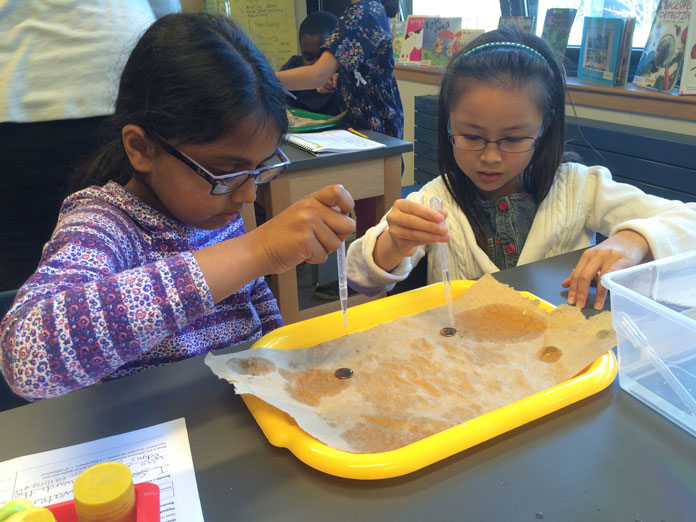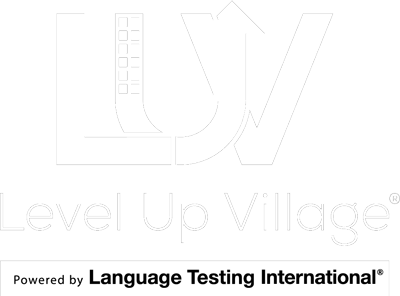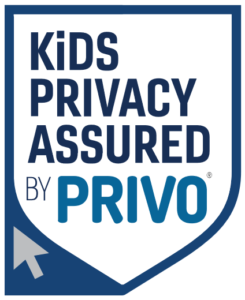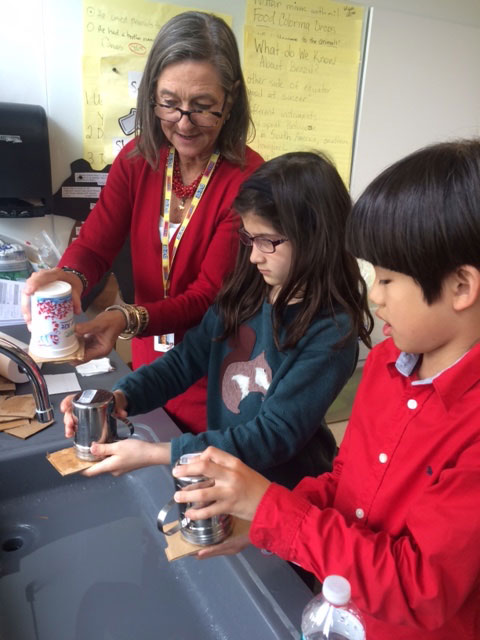
Ms. Dugan’s class learns about surface tension and water conservation in Level up Village’s Global Scientists course at The Pingry School.
Guest post by Andrea Dawson, Senior Writer at The Pingry School
Any chance they get, Pingry Lower School teachers enrich and enliven the learning experience for their young students by making interdisciplinary connections. They have found that projects involving science, technology, engineering, art, and math—or STEAM disciplines—are the perfect vehicle.
When second grade teacher Mary Ogden learned that a French teacher at Kent Place was partnering with a global educational exchange called Level Up Village to introduce a STEAM experience to his students while connecting with other schoolchildren abroad, she wanted to try it, too. Pingry’s Educational Technology Specialist, Jill Driscoll, then met with him and picked his brain. It seemed like the perfect program. She jumped on it.
And so, beginning on April 18, each of the school’s three second-grade classes began an eight-week pilot program based on different STEAM “courses,” all facilitated by Level Up Village (the company offers an array of age-specific courses for K-9 students, all designed to support global interactions that teach STEAM and design thinking skills).
Once a week for about two hours, the students take the course in class, which asks them to problem-solve, design and build. The highlight? Each class engages in weekly video exchanges with their partner school abroad, whose students are following the very same course. Mrs. Ogden and Sara Berg’s classes are taking the course “Global Storybook Engineers.” Their partner schools are in Ghana and Lagos, Nigeria, respectively. Sally Dugan’s class, connected to a school in Brazil, is immersed in “Global Scientists.”
“We really wanted to add design thinking into the Lower School curriculum, and this program was the ideal avenue,” said Mrs. Driscoll. “The design thinking part of this is so cool, but the global connection added to it is really the icing on the cake.”
Just what does a typical class look like? In “Global Storybook Engineers,” for example, the students read four folktales from around the world and engineer novel solutions to conquer the problem at hand. A few weeks ago, they read and discussed Strega Nona, a tale of an Italian witch doctor. In the next class, they were presented with the problem: the villagers in her small town in Italy faced being trampled by an avalanche of spaghetti—unless, that is, the kids could construct a tower tall and strong enough to withstand its glutinous force. Using only the materials delivered to them by Level Up Village in a giant Amazon box, the students gathered their uncooked spaghetti, mini marshmallows, tape, and string, and set to work.
After each lesson, the students record a video for their partner class abroad that summarizes how their solutions are going and what problems they’re encountering. They also offer some information about themselves and life at Pingry. At the beginning of each lesson, Pingry students watch the video response from their counterparts in Brazil, Ghana, and Lagos. According to Mrs. Driscoll, these video exchanges fascinate the students—most notably when the school in Nigeria took them on a virtual tour of their campus—and are a real highlight of the program overall.
Level Up Village often suggests questions, related to the lessons, for the students on opposite continents to pose to one another, such as, “How can we conserve water?” The shared responses can often be just as educational and revealing as the lesson itself.
“We really want students to learn from the exchange,” said Mrs. Driscoll. “The Global Scientists course, for example, teaches them that not everyone has access to clean water. The kids have an opportunity to see life differently from their own, and that’s an important lesson, too.”
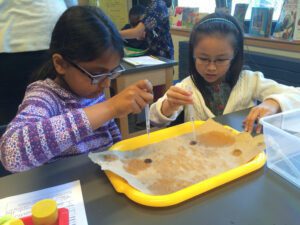
These girls conduct an experiment about surface tension in Global Scientists, a course that explores the chemistry of water and possible solutions to the global water crisis.
As with all STEAM endeavors, this one has been a real team effort, she noted. Pingry’s Director of Global Education, Jeff Jewett, helped to fund the collaboration with Level Up Village. Pingry’s fee covers all the materials for each eight-week course, as well as curriculum and tech support from the company, whose global communication platform serves as a portal for all the video exchanges (to get around the language barrier, Level Up Village subtitles the videos for the students). The fee also covers all the materials for the underprivileged partner schools with whom they connect.
Ms. Dugan has not taught science during her 16-year tenure at Pingry and admits that launching the program took much preparation on the part of the teachers, but it has all been worthwhile, she says. “The children are getting so much out of it and loving the discoveries that they are making. The things that they want to share with the other students in our video exchanges, whether it is about the lessons, themselves, their own life, or to ask something that they are wondering about, are very thoughtful, genuine and endearing.”
In the future, Mrs. Driscoll imagines expanding the program to include additional grades in the Lower School. The only hiccup thus far? The eight-week program is taking longer than the teachers planned to complete. As each class nears its end, their enthusiastic students, excited by lessons in “global STEAM,” beg for more time!
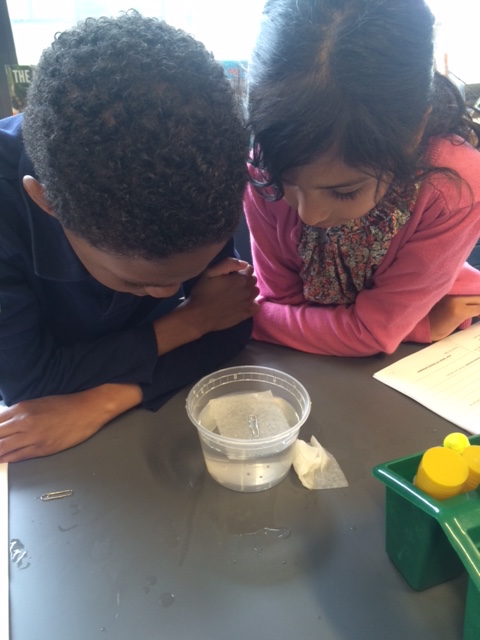
Students work together on a Global Scientists experiment and then share what they learned with their Global Partners abroad.
This article was originally posted on The Pingry School website on 5.24.16.

